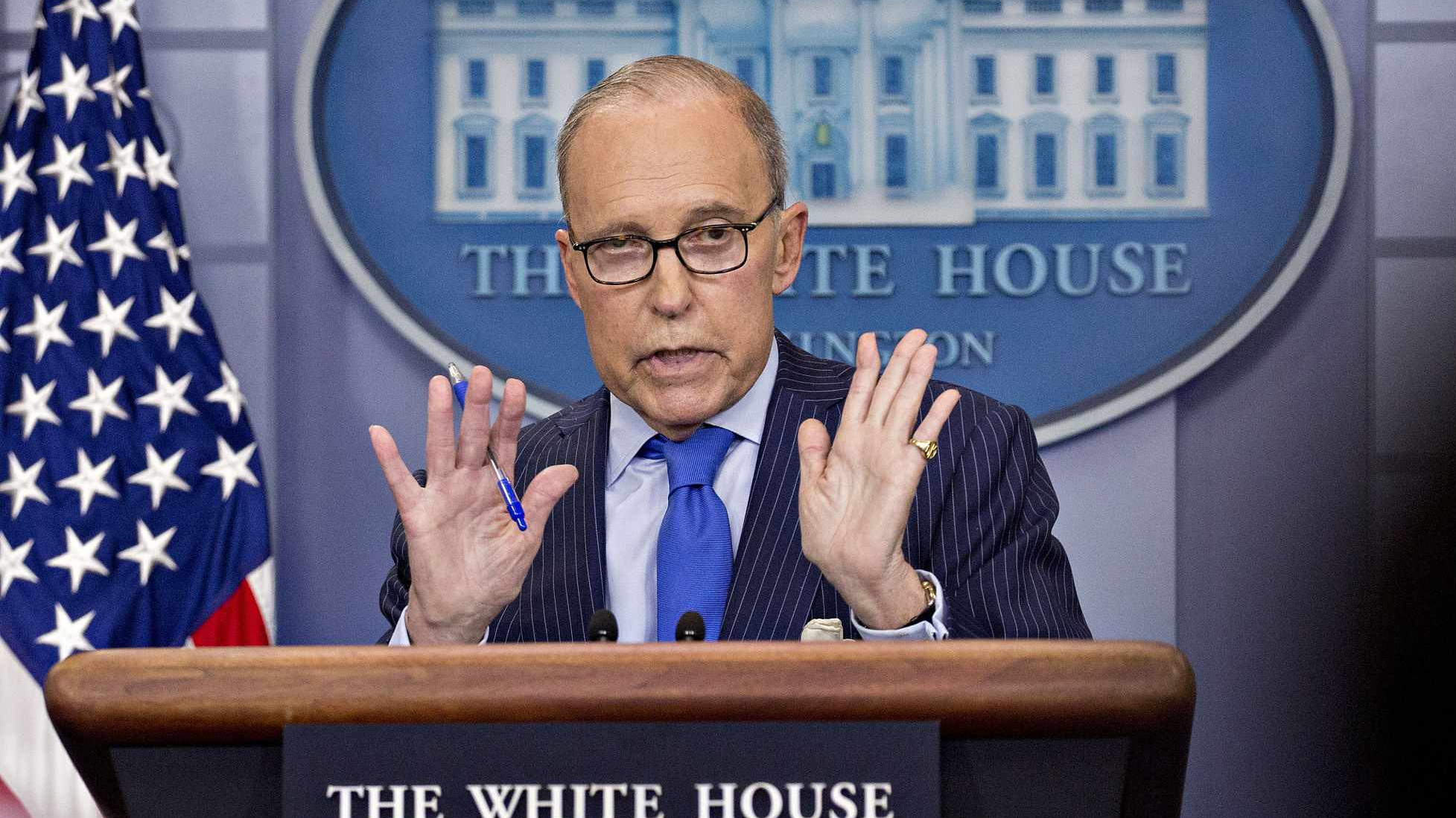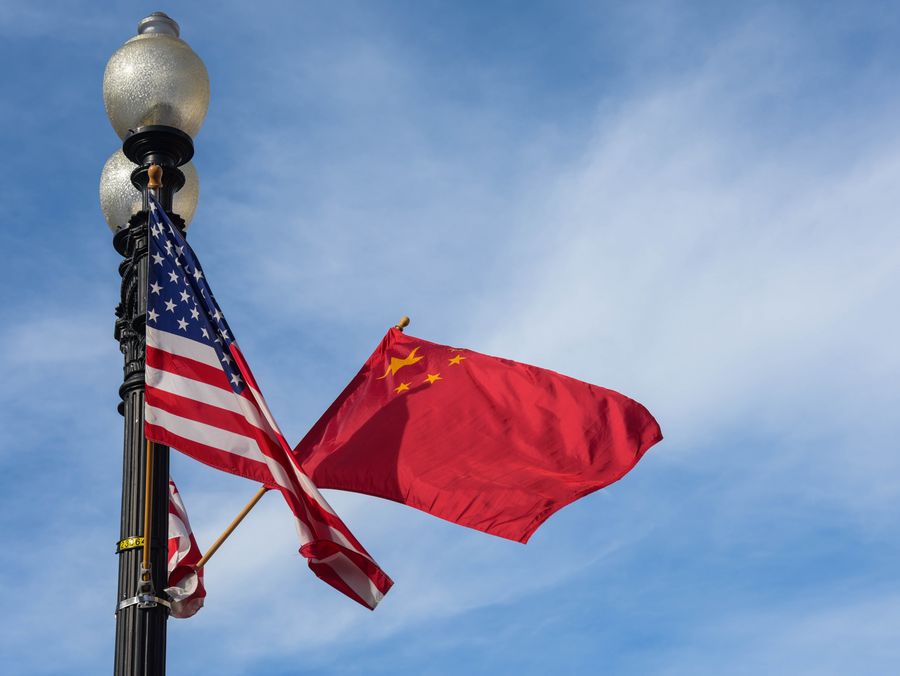
Editor's note: Tom Fowdy is a British political and international relations analyst and a graduate of Durham and Oxford universities. He writes on topics pertaining to China, the DPRK, Britain and the U.S. The article reflects the author's opinions, and not necessarily the views of CGTN.
On May 13 the United States government announced an "indefinite suspension" of a planned investment of American federal employee pensions, known as the "thrift savings plan" (TSP) into an index which follows a number of Chinese companies, several of which have been blacklisted in the U.S.
In a letter which was presented to the fund managers by Trump official Larry Kudlow, the administration proceeded to claim that the given investment was a "national security threat" to the United States. Hawks in the U.S. Congress, including Marco Rubio, had long been pushing for an end to investment in the fund.
The move creates speculation that the Trump administration is now actively pushing for "financial decoupling" from China.
Undoubtedly, it is a move that the COVID-19 has legitimized. However, this should be understood as an electioneering and crowd-pleasing bid from the presidency to appear tough on China, with very little consequences for either side. Chinese companies only constituted a small proportion of the index's membership. Secondly, these kinds of investments only in fact constitute a fraction of China's foreign exchange income, with the country's economy still being far weighted on foreign trade than portfolio equity inflows. Thirdly, American companies are still able to invest in many China indexes and schemes themselves.
The Trump administration is preaching hatred against China right now in a bid to deflect from its own COVID-19 failures. On May 13, the president on Twitter branded the virus a "plague from China" and seemed to hint at ripping up his early 2020 deal as a revenge bid to Beijing, or at least setting the stage for more demands and negotiations.
However, it should be quite obvious by this point that the administration is far more talk than action. The rhetoric from the White House seems to hide what has sometimes been a more realistic policy approach which recognizes the consequences of full-blown decoupling, even if many voices are pushing against the boundaries.

The national flags of China and the United States as well as the flag of Washington, D.C., on Constitution Avenue in the U.S. capital, September 24, 2015. /Xinhua
The national flags of China and the United States as well as the flag of Washington, D.C., on Constitution Avenue in the U.S. capital, September 24, 2015. /Xinhua
In practice, the administration in recent weeks held off more actions against Huawei, pursued trade negotiations with Beijing and the two countries moved forwards on tariff exemptions.
Given this obvious gap between rhetoric and action, an attack on U.S. pension fund investments into the MSCI All Country World Index, which contains some Chinese companies, is the perfect opportunity for the president to keep up the image that he is being "tough on China" and pursuing a politics of revenge, when in fact the move has little consequence.
Although the White House wants to make it look like the U.S. has just halted an investment of 50 billion U.S. dollars or so into China, in reality only 4 percent of the index constitutes Chinese companies, with 56 percent of this index consisting of American giants such as Boeing and Microsoft. This leads to our second point, that China is in fact not reliant on this source of income whatsoever.
Instead, a graph created by SAFE/Haver Analytics details China's sources of foreign exchange reveals that portfolio equity inflows (investments such as the above) constitute only a tiny fraction of the country's income, perhaps around 1-2 percent, with the majority of earnings being placed on foreign trade and export of services.
An analysis by Brad Setser of the Council on Foreign Relations observed on Twitter: "The direct impact of the U.S. move today is tiny" and "it just isn't financially significant."
Next, an assessment by Alex Lo in the South China Morning Post also pointed out that the move has no relation to big private index funds in the United States who are not likely to change their behavior. In doing so, Lo proceeds to describe the outcome as a "a Pyrrhic victory, for the kind of feel-good optics that appeal to Trump's base".
His assessment is correct; it is about appearing tough on China by posing a move which appears to be a lot bigger than it actually is. There is of course some concern or questions concerning what Trump will do next, and how far he will push on China, nevertheless there is mounting evidence that his bark is much worse than his bite. Thus whilst the potential of decoupling does remain somewhat of a risk, for sure this move is not a game changer to U.S.-China investment ties or relations in any significant way.
(Cover image: Larry Kudlow, director of the U.S. National Economic Council, speaks during a White House press briefing in Washington, D.C., June 6, 2018. /VCG)
(If you want to contribute and have specific expertise, please contact us at opinions@cgtn.com.)